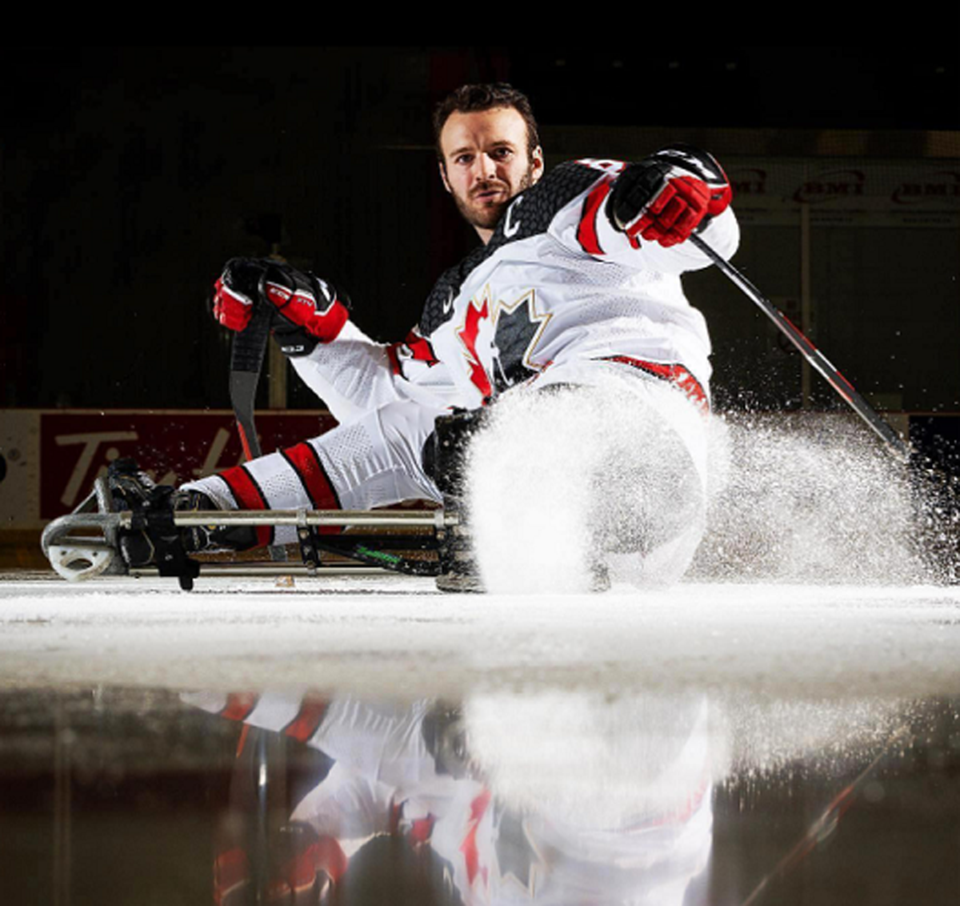YORKTON - Today, (Feb. 9), Canadian Paralympian Tyler McGregor was headed to Echo Valley Provincial Park as part of the Cross-Canada Sledge Skate of Hope.
The event is part of a Canada wide effort inspired by and as a tribute to one of Canada's most enduring national heroes, Terry Fox.
The Skate of Hope has McGregor having set a personal goal of skating his sled 42 kilometres (a marathon) in each of Canada's provinces with a goal of raising $100,000 for the Terry Fox Foundation in 2023.
McGregor said his interest in Terry Fox and his efforts go back to his own childhood growing up in a small town in southwestern Ontario, taking part in Terry Fox runs.
“It seemed like part of the curriculum,” he told Yorkton This Week, adding it was at that time Fox “became an inspiration in my life.”
At the time McGregor was a young hockey player with aspirations of playing major junior, maybe one day for Team Canada and even the NHL.
Then in 2009, in his first game of the season, McGregor, then 15, broke his leg.
As he was recovering a mass appeared below his left knee. It was determined it was diagnosed with spindle cell sarcoma — an extremely rare bone cancer. He started chemotherapy, but only a few weeks in, it was determined amputation was the only way to save his life.
McGregor said his cancer was similar to what cost Fox his leg, and through the process he learned something that really stuck with him.
When Fox was diagnosed his chance of survival was only 20 per cent. By 2010 as McGregor was diagnosed his survival expectation was 80 per cent.
“It sort of showed the impact of Terry Fox’s Marathon of Hope,” he said.
McGregor would recover, and soon shift his passion to para hockey, which he admitted was a huge adjustment.
“It was a major adjustment,” he said, adding he had expected “to adjust very quickly,” but soon learned para hockey is “an incredibly hard sport,” citing as an example “the angles are far different from stand-up hockey,” and it relies largely on upper body strength for everything. “. . . It was crazy challenging and honestly still is.”
But, the effort made was worth it, and McGregor realized the dream of playing for his country, having spent the last decade with Team Canada, helping lead the team para hockey silver at the Beijing Paralympic Winter Games in 2022, after winning a bronze and a silver with Team Canada at the 2014 Sochi and 2018 Pyeongchang Paralympic Winter Games, respectively.
It was over the COVID shut down that McGregor said he found himself thinking about Terry Fox and what he stood for, and what he might do to continue the effort in some way.
“I had so much more time to focus on things important to me, not just hockey,” he said.
So in 2021, as a fundraiser, McGregor did a long distance skate on his sled, something he’d never done before.
“It was a challenge,” he said, adding that while he felt the effort physically “. . . I knew I had more to give.”
The ‘more’ was a decision to skate essentially a marathon in each province in 2023.
McGregor said the effort is so different from even a para hockey game at the highest level.
“It absolutely is. It’s a different kind of effort. In a hockey game you’re used to short bursts of energy,” he said, adding in the distance skates it’s about pacing and still feeling the fatigue. “. . . Your body just starts to feel heavy and slow by the end.”
But, McGregor said he adapted.
“My body handles whatever physical challenge I put it under,” he said.
While the series of 10 skates is a fundraiser, it is also a way to raise awareness regarding para hockey, said McGregor.
“It’s a secondary, or tertiary goal – absolutely. I want to raise awareness of the sport . . . Increase exposure to our sport,” he said, adding that aspect of the effort has worked well. “. . . The attention around our sport has been exceptional.”
While too warm a weather, snow and scheduling have all created challenges McGregor might not have initially expected, it is an effort he is glad he took on.
“The mental and physical exhaustion has been difficult some days,” he said, but added the people he meets at each stop “. . . just completely reenergizes you.
“I just feel so rewarded and gratified.”

